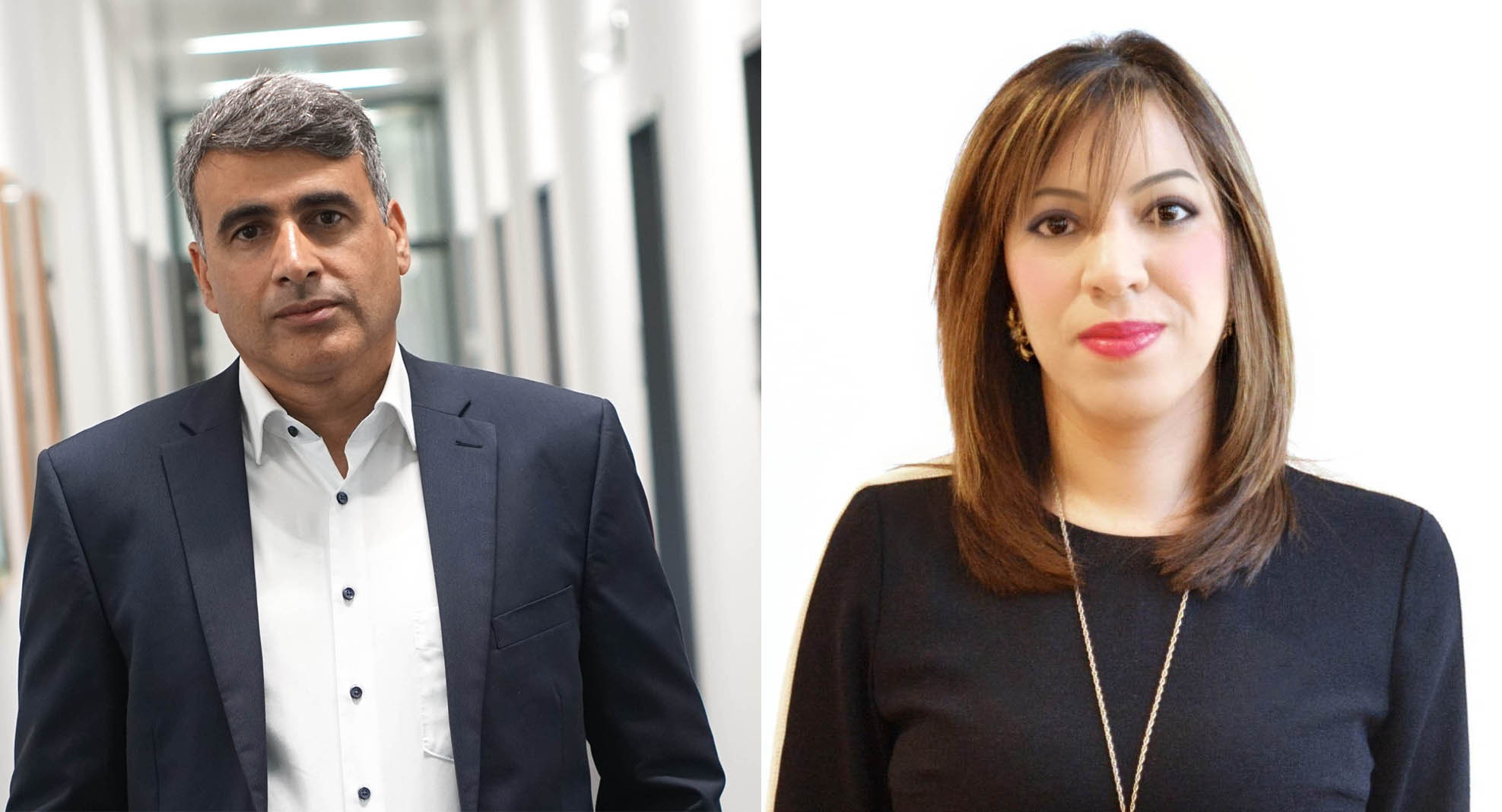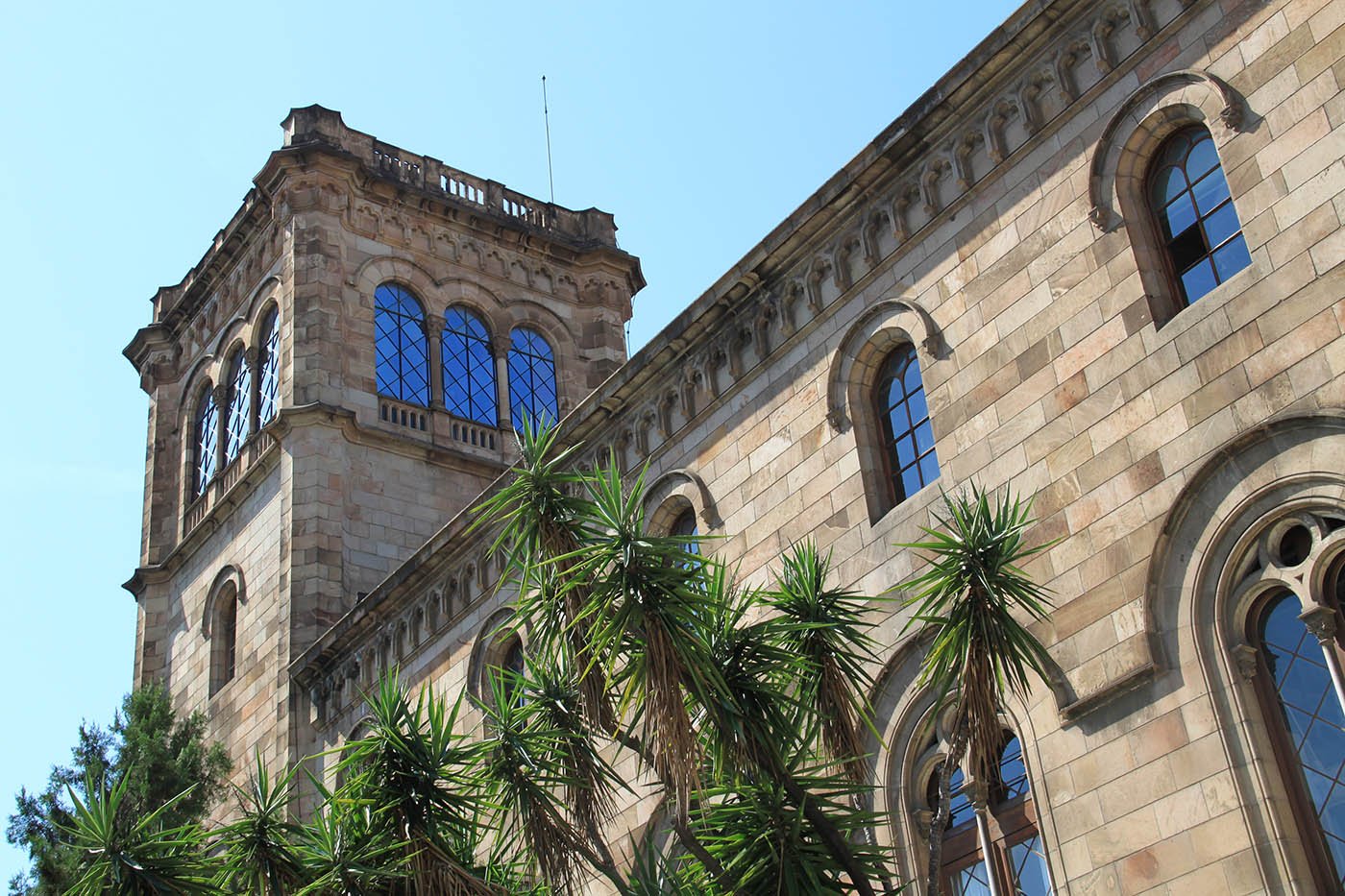Just months after Dr Ahmad Al Ajlan begun a new job as a university lecturer in the Syrian city of Deir ez-Zor, he was forced to flee his country for Europe. When he arrived in Germany in March 2015, after several months of travelling, he was placed in a number of camps before being allocated a cramped apartment with five other refugees.
As tensions grew around him between local young men and the refugees housed in their area, Dr Al Ajlan tried to build a new life and restart his career. He wrote to German universities asking if they might have any positions for a political sociologist such as himself.
While he now has excellent English, at the time he lacked the complex vocabulary needed in academia and spoke almost no German. He also felt lost as he tried to navigate the bureaucratic systems of the strange, foreign country he now found himself in.
‘I didn’t set out to come to Germany, as my goal was just to get away from the threats I faced in Syria,’ he said. ‘The country functions very differently from Syria. Academic life and the education system were not at all like what I was used to … It all felt very slippery.’
Researchers and academics like Dr Al Ajlan, who come to Europe as refugees, face immense challenges and uncertainty which prevent them from picking up their careers again. (Read more about Dr Al Ajlan’s story in the box below)
A good number of the refugees who arrive in Europe have had highly skilled jobs in their home country, says Marija Mitić, policy officer at the Academic Cooperation Association (ACA) in Brussels, Belgium. But they lack support when they come to Europe, she says, adding that there is more focus on getting refugees into lower skilled jobs.
‘Academia is elitist and closed at the best of times, but for newcomers and outsiders there is a glass wall around it.’
ACA coordinates two projects which are trying to help refugees enter academia in Europe. These projects, as well as training and mentoring programmes, are helping some refugees to now break through this glass wall.
‘My experience has taught me that we cannot look at refugees as a single thing or even one community. We are all individuals who grow up in different conditions and have to then adjust to a new society.’
-Dr Ahmad Al Ajlan
Dangerous
Helping academics and researchers deal with problems such as how to navigate the education system is the aim of a project called BRiDGE. It will support 220 researchers who are at the post-PhD and later stages of their careers but have had to flee dangerous situations in their home countries.
Focused mainly on refugees in Germany, Switzerland, Bulgaria, Greece and Turkey, it offers career advice, training and mentoring for the researchers as they try to establish themselves in academic roles in Europe.
Dr Al Ajlan was one of those lucky enough to get some help from the project.
‘It has given me the chance to learn from others, get guidance and advice that has helped me,’ he said. ‘Even the way people write and conduct research here is methodologically different.’

The support offered by BRiDGE has also proved helpful for another researcher who was forced to leave her home in Syria.
Dr Shifa Mathbout obtained a PhD at the University of Barcelona, Spain, in 2016 after studying the effects of climate change in the eastern Mediterranean. While she was studying, the situation back home in Syria took a dangerous turn after her brother began working with the Syrian opposition.
Fearing persecution if she returned home, she applied for international protection status. Now she is a full-time researcher in the climatology group at the University of Barcelona and has obtained two post-doctoral positions in Spain despite her perilous immigration status.
‘Applying for jobs is extremely tough when you don’t have residency,’ said Dr Mathbout. ‘Travelling is also an important part of my research and I need to attend international conferences but it is difficult every time. Even getting through the airport can take hours.’
Documents
Dr Mathbout says BRiDGE has been an invaluable source of advice and support. She is fortunate, however, to have a strong academic record to show to potential employers.
Many refugees who find themselves in Europe do not, having left many of their belongings, certificates and other documents behind, according to Mitić of ACA.
‘It is a particular problem for students and those in the early stages of their career as it can be hard to prove their expertise and qualifications,’ she said.
Under GREET, a project coordinated by ACA, higher education institutions and national academic bodies have been sharing their experiences and successes when working with refugee researchers and students. The project is building up a suite of publicly available resources and examples of best practices to help universities and other organisations so that they can assist refugees. It is due to be made available in September this year.
One resource is the European Qualifications Passport for Refugees, initially developed by the Norwegian Agency for Quality Assurance in Education and the National Recognition Centre for the UK, and is now being used by partner institutions. It uses a questionnaire, along with expert assessment and a structured interview, to help evaluate if a refugee has the qualifications they claim and then issues them with a certificate of proof they can for enrolling or seeking a job.
GREET has been highly successful at sharing information on good practices like these, according to Outi Tomperi of the Finnish National Agency for Education (EDUFI), one of the project partners.
‘Protracted conflicts in Syria and Yemen, to mention only a few, threaten the lives and careers of thousands of professors, researchers and aspiring academics, as well as the entire higher education systems of these countries,’ she said.
‘By supporting these scholars, European institutions both enrich their own communities and invest in the post-conflict reconstruction of war-torn societies.’
Sustainability
But there are problems that still need adequate solutions, says Mitić.
‘For scholars, the sustainability of the funding they get is a problem. Fellowships only last one to three years and when it is over it is difficult to find another position,’ she said. ‘That is a high level of uncertainty for them, especially if they have to learn a language and integrate into the host country.’
Language skills are also a major problem, she adds. The level of foreign language skills needed to work in academia is much higher than those needed to communicate in everyday life.
The CARe project, which is also being coordinated by ACA, is attempting to identify problems refugee researchers encounter as they try to find jobs in their host countries. Through focus groups and surveys, the project is also asking employers and refugees for suggestions on how to overcome these problems.
In 2017, Dr Al Ajlan received a call from a BRiDGE coordinator at Bielefeld University, in Germany, who invited him to meet with a professor. The meeting led to Dr Al Ajlan working on a project investigating violence between refugees and local youths in urban environments.
‘As a refugee myself I was able to understand a lot more about what they had been through,’ he said, something that, along with being a native Arabic-speaker, helped him earn the trust of the refugees he interviewed. He is now working on a new project to further investigate the conflicts faced by young male refugees in Europe.
But adjusting to his new life has not been easy.
‘I suffered some psychological problems from the war that I cannot easily escape. I think about the friends of mine who were killed, and I miss my family,’ he said.
‘But my experience has taught me that we cannot look at refugees as a single thing or even one community. We are all individuals who grow up in different conditions and have to then adjust to a new society.’
The research in this article was funded by the EU. If you liked this article, please consider sharing it on social media.
Originally published on Horizon.

